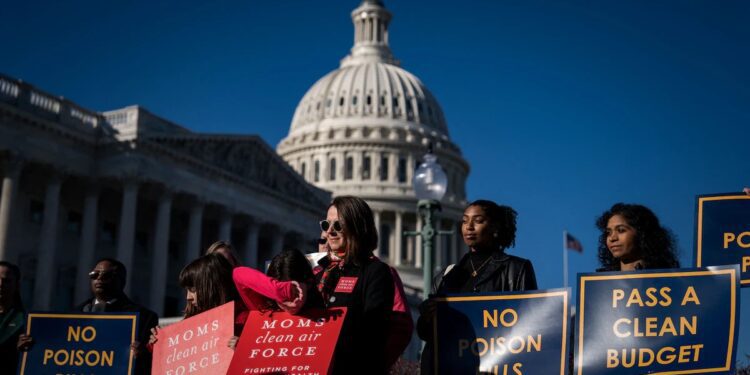Short-Term Spending Bill:
US Approves Spending Bill: Preventing Government Shutdown. The potential shutdown threatened the functioning of key federal agencies and the unpaid furlough of thousands of employees.
The House of Representatives voted 314 to 108 to keep the government operational for an additional six weeks.The Senate had previously passed the measure with a vote of 77 to 18.
Public Workers Unpaid:
Negotiations faced complications as forecasts predicted a severe winter storm. Congress decided to close for the entirety of Friday due to the impending weather conditions. Lawmakers’ work was significantly disrupted by the closure. The shutdown impacted various government functions, affecting military operations, food aid, and policymaking. Public workers were on the brink of being sent home without pay, further adding to the challenges.
Good News:
Democratic Senate leader Chuck Schumer delivers positive news that US Approves Spending Bill Preventing Government Shutdown.
Bipartisanship prevails as both sides collaborate to keep the government open. Essential services will remain uninterrupted. Averted disaster marks a successful outcome from the joint effort.
Short term Fix:
A short-term solution was proposed as negotiations for a full-year budget hit a snag. House Republicans pressed for substantial spending cuts, enhanced border security, and stringent immigration restrictions. Their conditions must be met before considering President Biden’s $106 billion request for supplemental funds, primarily allocated for Ukraine and Israel.
Key federal entities, including the military, Department of Justice, border security, and Congress, faced a financial deadline at the beginning of February. With the approved short-term fix, these agencies now have funding until March 8, averting an immediate financial crisis.
Dysfunction
Congressional unity, even on rare occasions, often results in slow progress.
Lawmakers’ inability to pass a full budget for a fiscal year, starting almost four months ago, underscores dysfunction in Congress. The deadlock is particularly evident in the delayed approval of urgently requested foreign aid by the White House.
Senate party leaders support additional aid for Ukraine in its war against Russia, but House hardliners are skeptical, questioning if providing more funds aligns with US interests.
Both sides acknowledge the crisis of a record number of migrants crossing from Mexico but differ on the appropriate response.
Democratic Senate leader Schumer aims to introduce a bipartisan border security and foreign aid bill next week. Republican Speaker Mike Johnson, however, has not committed to bringing the bill to the House floor.
















